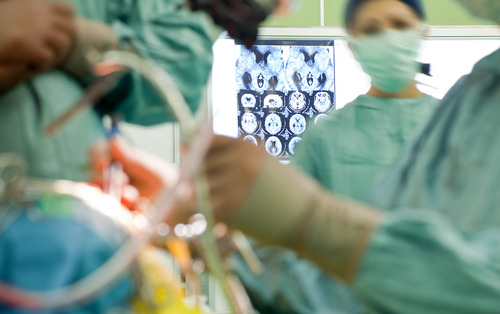Migraine surgery dramatically improves patient function and ability to cope with pain
M3 Global Newsdesk Jan 22, 2018
Surgical treatment for migraine—recognized as an effective option in select patients who have chronic, severe, refractory migraines—can significantly improve everyday functioning and coping, according to a study recently published in Plastic and Reconstructive Surgery.

"Our study demonstrates the high functional disability experienced by migraine patients, compared to those with other pain conditions," said American Society of Plastic Surgeons member surgeon William Gerald Austen, Jr., MD. "The results also show that migraine surgery can lead to dramatic improvements in functioning and coping ability, even in patients who are very disabled before surgery," added Dr. Austen, who is also chief, Plastic and Reconstructive Surgery, Massachusetts General Hospital, Boston, MA.
Surgical treatment for migraine was developed by plastic surgeons who noticed that some migraine patients had fewer headaches after a cosmetic forehead-lift. Surgical migraine procedures address the trigger sites linked to certain patterns of headache. One difficulty, however, has been that the efficacy of these surgical options has been evaluated only with migraine-specific questionnaires, rather than pain questionnaires.
"Pain questionnaires used in the evaluation of better-understood and more common pain syndromes have not been applied to migraine surgery," noted Dr. Austen and coauthors. To address this, they conducted a study to evaluate the efficacy of migraine surgery with the Pain Self Efficacy Questionnaire (PSEQ), which is currently used to assess treatment outcomes in patients with a variety of pain conditions. The questionnaire provides scores for pain, functional disability, and ability to cope with pain in performing normal daily activities.
Dr. Austen and colleagues included 74 patients who had undergone migraine surgery performed by Dr. Austen between 2013 and 2015. They evaluated patients both pre- and postoperatively with the Migraine Headache Inventory (MHI), the standard migraine questionnaire, and the PSEQ. Preoperatively, patients had “extremely poor” PSEQ scores (18.2), which reflect high levels of disability. Preoperative pain coping scores in migraine patients were also significantly lower than those in patients with other kinds of chronic pain, such as neuropathic pain, arthritis, or lower back pain. At 1 year postoperatively, migraine patients exhibited significant improvements in average PSEQ scores, with an average of 112% higher than preoperatively. This improvement was higher than in patients with other types of chronic pain.
Migraine surgery also improved functioning and coping, even in patients who had very low initial PSEQ scores. This was in contrast to patients with musculoskeletal problems, in whom low PSEQ scores predict poor treatment outcomes. Surgery also effected a 76% improvement in migraine-specific MHI scores in outcomes such as headache frequency, duration, and severity.
Despite the high functional disability experienced by migraine patients, compared to those with other pain conditions, they can recover function and their ability to cope with pain very well after surgery.
The positive outcomes continued after surgery, including large improvements in migraine-related disability. "It seems that migraine surgery patients can recover function and ability to cope with pain very well after surgery, in stark contrast to what has been shown in other pain conditions," the authors wrote. "Chronic pain questionnaires such as the PSEQ add to our understanding of functional outcome after surgery and put pain in migraine surgery patients in perspective to better-known pain conditions," concluded Dr. Austen and colleagues.
This story is part of our Global Content Initiative, where we will feature selected stories from our Global network which we believe would be most useful and informative to our doctor members.
-
Exclusive Write-ups & Webinars by KOLs
-
Daily Quiz by specialty
-
Paid Market Research Surveys
-
Case discussions, News & Journals' summaries